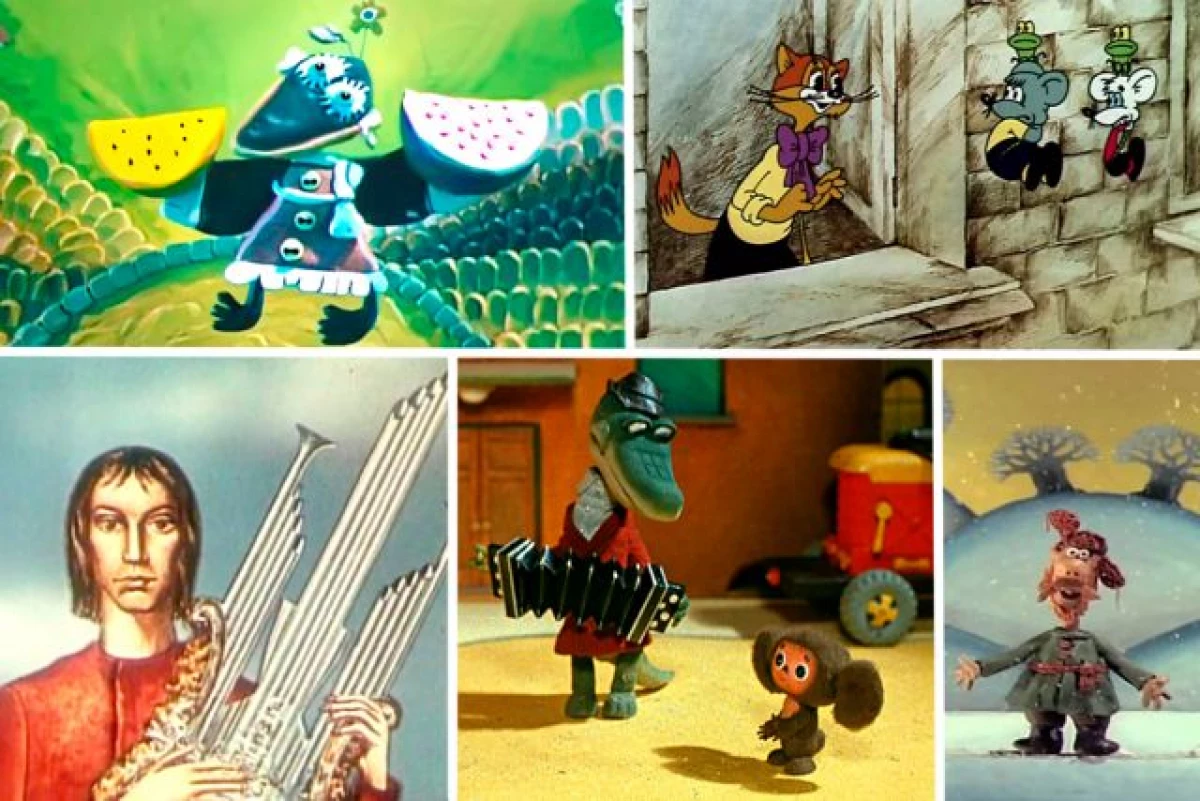In almost everyone, the USSR was subjected to censorship, even seemingly such a harmless genre as animation. Sigor censors could see "Socinka" anywhere, including where there was no hint on the trick. "AIF" learned what cartoons of the Soviet period were subjected to censorship directed, for which they were almost forbidden, and also for which, after all, some work was superimposed to ban "prohibit". Why censorship almost "bored" some cartoons in the USSR, Tut.BY.

"Cheburashka and Crocodile Gena"
An unknown animal with a huge ears, who came up with Eduard Uspensky, problems arose at the stage of the book option. The editors believed that the book about Cheburashka is harmful, since a friend must be sought in the team, at work, and not on the ad. "We are not in the west of some. The USSR does not have lonely! " - told the author. Or reproached: "Why is this gene with Cheburashka, a lot of scrap metal has gathered, but pioneers are not enough? Land! ". The book did not want to print for a long time, found many incomprehensible children of acute, said that she was not written in the Soviet rules. Edward Uspensky recalled that the book was saved by the artist Valery Alpeevsky.Then already in the Goskino cartoon, filmed based on the books, suspected in anti-partyity. It was again the episode with an episode with scrap metal, which Cheburashka and the gene gathered more than Pioneers: they say, it indicated that, it means that the pioneer organization is not very necessary.
"Plasticine Crow"
To the cartoon "Plasticine Crow" Writer Edward Uspensky in five minutes wrote poems, composer Grigory Gladkov was picked up for half an hour, and the director Alexander Tatar was easily and quickly wrote a script that he was "simply dictated over." This work consists of three different stories: about paintings, about games with blinking and, in fact, about the crow.
The cartoon was banned because of ideological exclement. Sarcastic morality ("Do not stand and jump where the construction is under construction or suspended.") Perceived literally, the junciation was not welcomed. There was a claim to voice acting. One of the heroes tells Muller's voice (Leonid Bronvory) from "17 moments of spring." "Gestapo and children are incompatible," censors were taped. As a result, the film was dust in the shelves for several months until it was not shown by the censors in the "Kinopanoram". After that, "Crow" was allowed on TV.
"Cat Leopold"
Thinking on the next cartoon, the director Anatoly Reznikov decided that a traditional approach, where one hero is stupid and evil, and the second is smart and kind, he will not suit him. And he came up with the heroes-flippers: an intelligent, kinderful cat, whom malicious mice are picked up. The cat was named after Colonel Leopold Kudasov from a very popular film "Elusive Avengers".The first film "Revenge of the Leopold Cat" Khsovitset ruthlessly "drove", considering the design of the name and titles too bloody. And the film appeared to the censors "pacifist and anti-Soviet": they say why the cat did not eat mice, as it should be, and entered with them in the idle talk?
Fortunately, Reznikov immediately presented another film about Leopold and Golden Fish: this series was favorably and immediately released on television screens. And there they gave good and new series. At the same time, the cramole "revenge" was allowed to show only 6 years.
"Last year's snow fell"
Almost all the work of Alexander Tatar caused questions from censorship. It happened and the cartoon "fell last year's snow". The working name of a fun New Year's story about a peasant who went to the forest for the Christmas tree was another - "Christmas trees, a thunder-tree". But it did not fit. Also, it was not possible to invite Lyi Ahacedzhakov or Rena green as the story, as the creator planned. As a result, the cartoon voiced Stanislav Sadalsky. But on the eve of his name crossed out of the titles. "Good people" reported "Where to", that, they say, the actor saw in a restaurant with a foreigner.
Examined the whole soul and Tatar, saying to the director that he disrespectfully applies to a simple person: "You have only one hero - a man, and that idiot! .." Such a complaint presented him. The "cartoon" was sent to the improvement, I had to renovate and renovate in places.
"Glass harmonic"
The plot of this animation work Andrei Krzhanovsky is: in the same city there are greedy and pompous people - they hate everything surrounding them. But one day an unknown musician comes to the city, the sounds of which all "comes to life."
Questions to the cartoon for censorship appeared immediately after the exit (1968). They say, due to the fact that he came to the eyes of the inspection bodies on the day of entering the Soviet troops in Czechoslovakia, this did not influence their favor. Censorship forced the authors to make an explanation for the audience, in which it would be said that we were talking about bourgeois society. Then they found a negative attitude towards the Soviet bureaucracy. The author's team agreed to correct distressed places, but the cartoon is still banned to show. It is assumed that a special discontent caused the image of the "man in the pot", the character of the paintings by Rena Magritt, who was not able to earn love in the USSR. Tut.BY.
